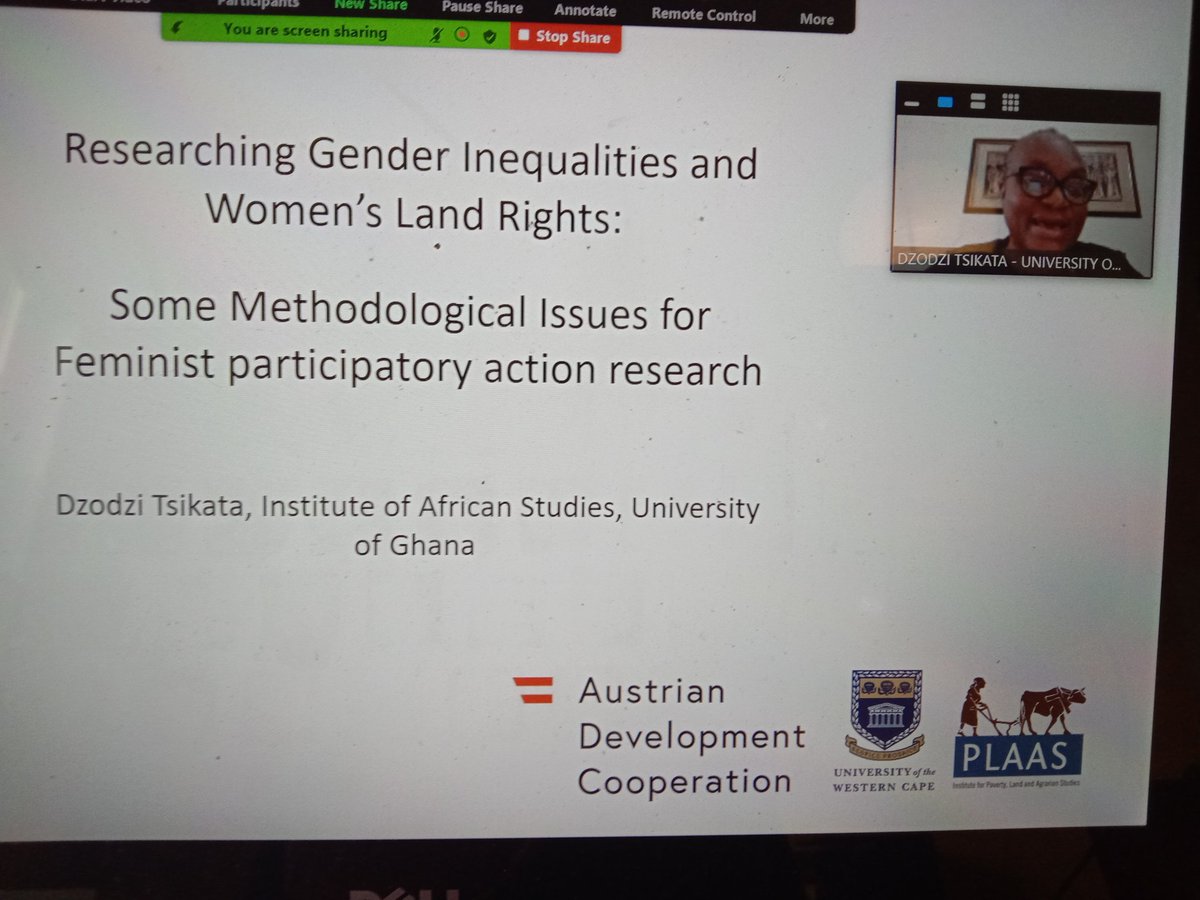How to do feminist participatory action research? ✊🏾🎉
We are pivileged to have Prof @DzodziTsikata working with our regional team on women's #landrights. See thread 👇🏽
@NkuziD @ZamLandAlliance @Livaningo @PYDT1 @AustrianDev #PLAAS_ADC #LandTenure
We are pivileged to have Prof @DzodziTsikata working with our regional team on women's #landrights. See thread 👇🏽
@NkuziD @ZamLandAlliance @Livaningo @PYDT1 @AustrianDev #PLAAS_ADC #LandTenure

Participatory action research methods lend themselves better to feminist research than conventional social research methods - this is about challenging power in and through knowledge production. @DzodziTsikata 

Orthodox research methods often deny women's knowledge and agency and are blind to gender power relations. Feminist research recognises women's epistemic authority. You have to dig behind "I don't know, you will have to talk to my husband". @DzodziTsikata
Intersectionality: who we are is not binary....and who we are matters in feminist action research. The "researched" and the "researcher" should both be changed through the process. And the researched is also a researcher, a holder and producer of knowledge. @DzodziTsikata
When designing your feminist social research, analyse the political terrain of struggle. Who are the key players, their ideologies, narratives, power, institutional cultures and gender politics? Where are the fractures & contestations? Strategise your research. @DzodziTsikata
@DzodziTsikata applies Henry Bernstein's 4 questions of political economy to feminist agrarian research:
1. Who owns what? (land, capital, labour, technology)
2. Who does what? (re/production)
3. Who gets what? (money, produce)
4. What do they do with it? (use/invest)
1. Who owns what? (land, capital, labour, technology)
2. Who does what? (re/production)
3. Who gets what? (money, produce)
4. What do they do with it? (use/invest)
Always look at decision-making in relation to production, distribution & reproduction. Who makes what decisions? All feminist social research should attend to assets, labour, decision-making, and power - and differences among women. @DzodziTsikata
• • •
Missing some Tweet in this thread? You can try to
force a refresh







